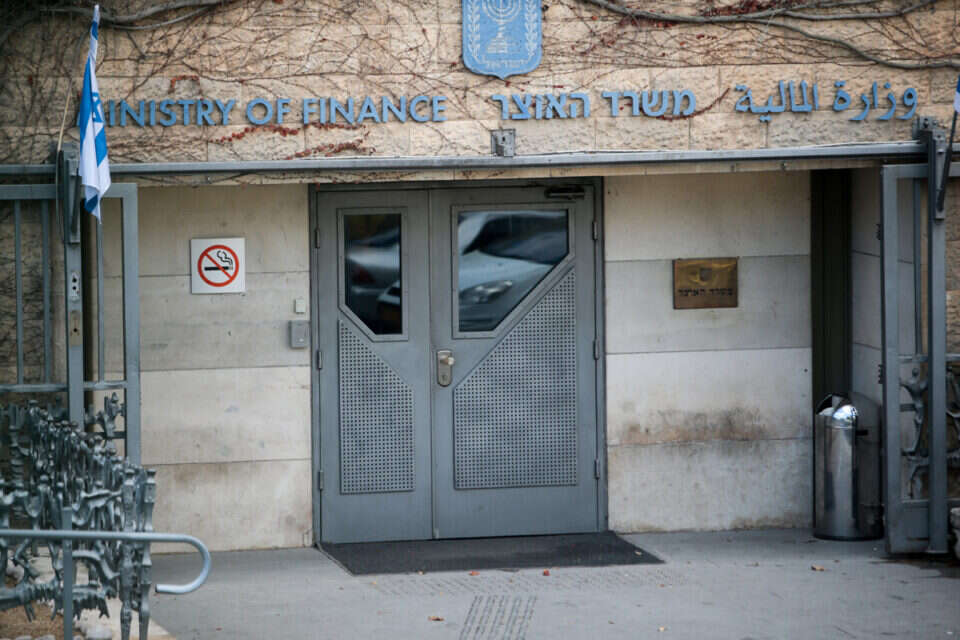The elections are behind us and the race for the treasury portfolio has begun.
According to various reports, the chairman of religious Zionism, Bezalel Smotrich, will ask to enter the Ministry of Finance, and the other two parties of the emerging coalition, Torah Judaism and Shas, would also be happy to receive the portfolio.
Benjamin Netanyahu in a speech after the samples, photo: Liron Moldovan
Smotrich's economic plan is characterized by a conservative agenda and claims to bring order to organized labor in Israel - among other things, to enact a mandatory arbitration law in essential services, ban solidarity strikes, abolish tenure in the civil service, and more.
The plan could open a front with the Histadrut, which has maintained industrial peace in recent years.
Netanyahu will probably try to keep the finance portfolio in the ruling party, and considering the fact that the emerging coalition will no longer be very narrow, 64 seats, he will be less blackmailing and there is a high chance that he will succeed in this.
Religious Zionist chairman Bezalel Smotrich at the faction meeting, photo: Oren Ben Hakon
Netanyahu considers the treasury portfolio to be of utmost importance, he tends to be proud of his economic achievements and has acquired the nickname "Mr. Economy" over the years.
He himself served as finance minister and brought economic achievements, which were praised even by his bitter rival, Avigdor Lieberman.
Netanyahu also presented the Likud's economic plan, which was presented at the beginning of August, himself and worked on it together with Prof. Avi Simhon, his former right-hand man on economic issues.
Not an easy choice
On the assumption that the finance portfolio will indeed remain in Likud, Netanyahu may hesitate in his choice between Nir Barkat, Eli Cohen and Israel Katz, who desire the position.
Katz was already finance minister in the past during a very challenging period - the height of the corona crisis, when the budget deficit opened to an all-time high and the unemployment rate crossed 20%.
His tenure was characterized by sharp conflicts with senior finance officials, which led, among other things, to the resignation of the CEO and the head of the budget department.
Eli Cohen, who came out in the last primaries as number three, stands out as the outstanding candidate for the position.
Cohen is considered close to the chairman of the Likud and was already a minister in his government (minister of the economy), he is an accountant by training and has extensive experience in the business sector.
Cohen even prepared his own economic plan to lower the cost of living in Israel.
His plan, similar to Likud's plan, includes a freeze on electricity, water and property taxes, as well as a gradual lowering of the VAT from 17% to 12%, over five years, at an annual cost of approximately NIS 6 billion.
MK Eli Cohen // Photo: Oren Ben Hakon // MK Eli Cohen // Photo: Oren Ben Hakon
Netanyahu's test
Another candidate from the Likud who will compete for the position is, as mentioned, Nir Barkat, who, although he has never served as a minister, was the mayor of Jerusalem for a decade and managed the budget of the largest city in Israel.
Barkat also has his own economic plan to lower the cost of living, which he presented with Netanyahu about two and a half years ago.
Netanyahu participated in the presentation of the plan, which mostly dealt with lowering tariffs and regulations and reducing taxes on land purchases, and announced Barkat as the "next finance minister" - a promise that has not yet been fulfilled.
Either way, just the Likud's election promises add up to a huge cost of tens of billions of shekels.
Only free education for ages 0-3 will cost, according to estimates, about NIS 20 billion, and freezing the "inflation generators" (electricity, water and property tax), as Netanyahu puts it, will cost about NIS 4.5 billion more.
However, in addition to these measures, which increase government spending, Netanyahu also committed to lowering taxes (lowering income tax by further spacing the tax brackets and further increasing the credit points, reducing corporate tax) - a step that reduces government income.
To this must also be added the coalitional demands of the ultra-orthodox.
The Shas party, for example, has committed to expanding the distribution of food stamps to the extent of one billion shekels per year in the base of the budget, and it is possible that the budgeting of ultra-Orthodox educational institutions will also increase.
Where will the money come from?
It is to be hoped that the budget surplus that since the beginning of the year amounted to an astronomical amount of 33 billion shekels is not a one-time event, and that the state's revenues from natural gas will accumulate at a faster rate than recorded so far.
were we wrong
We will fix it!
If you found an error in the article, we would appreciate it if you shared it with us

